2024 Year in Review: Delta’s Biggest Policy Wins for Ducks and Duck Hunters

To do your part to protect your local and national right to hunt, sign up for Delta’s Action Alert System, receive notifications when issues arise near you, and make your voice heard when it matters most
2024 was an impactful year for Delta Waterfowl as an organization, and the work that Delta’s policy team does on behalf of ducks and duck hunters was no exception. Delta works diligently across every level of government to address threats to duck hunting, create new and expanded opportunities for sportsmen and women, fight for conservation funding where it’s most needed, and press for new and innovative habitat conservation approaches. From the halls of Congress and Parliament to state capitols across the United States—and right down to the local level—Delta’s policy team is aggressively fighting for ducks and duck hunters.
Here is a brief snapshot of some the biggest wins for ducks and duck hunters in 2024:
Access and Opportunity
- United States: Delaware – Delta Waterfowl worked directly with the Delaware General Assembly to provide written and oral testimony in favor of House Bill 271—legislation that repeals the decades-old prohibition of hunting waterfowl and other game birds on Sundays—which passed the Delaware Senate and House without a single recorded “NO” vote. It was signed into law by Governor Carney, and Delaware duck hunters enjoyed their first Sunday hunt earlier this fall.
- Canada: Ontario – Through Delta’s policy work, and with the assistance of Delta’s local chapters and resident waterfowl hunters, six new municipalities experienced Sunday gun hunting for the first time in 2024. New jurisdictions include Amaranth, Oro-Medonte, Mapleton, Minto, Scugog, and Springwater, which was approved late in the fall 2023 but implemented in spring 2024.
- Canada: Prince Edward Island – Thanks in large part to Delta’s policy work and grassroots advocacy, the General Assembly of Prince Edward Island passed Bill 58 earlier this year, repealing a longstanding ban on Sunday hunting in the island province. With this prohibition removed, duck and goose hunters in PEI will enjoy 18 extra days of hunting going forward.
- Canada: Maritime Provinces– Delta’s policy work was successful in securing a full 107-day season for each of the Maritime provinces. This provided an additional one to two weeks of duck hunting days in 2024.
- United States: California – In 2024, Delta policy staff worked hard in California to help push through legislation to codify and clarify language around accessing navigable waters while waterfowl hunting. Beginning Jan. 1, 2025, California hunters will be permitted to leave the marked boundaries of a waterway and hunt flooded waters, provided they do not trespass on private property and maintain a minimum distance of 150 yards from any residence or building. This legislation was drafted to resolve a conflict between the Fish and Game Code and a 1985 State Attorney General’s Opinion. The State Attorney General in 1985 determined that hunting is an integral part of the public right of navigation and that restrictions on hunting navigable floodwaters are unconstitutional as they conflict with Article X, Section IV, of the California Constitution, which mandates the State Legislature to protect public access to navigable waters.
- United States: Wisconsin – After years of steady advocacy work, waterfowl hunters in Wisconsin are one step closer to enjoying an established, regulated season for sandhill cranes. Delta worked closely with partners to successfully advocate for a legislative study committee to review and recommend options to manage Wisconsin’s sandhill crane population. Delta was fortunate to have a staff member, Paul Wait, representing waterfowl hunters on this study committee. After months of debate and interactions with lawmakers and the conservation community, the study committee voted 8-4 to move forward legislation to establish a season for sandhill cranes on the docket of the 2025 legislative session.
- Canada: Saskatchewan– Delta’s policy team helped enable a regulation change so that all-day dark goose hunting is allowed throughout the season and across the province. In prior years, morning-only dark goose hunting was allowed until mid-October in much of southern Saskatchewan.
- Canada: Ontario and Quebec– Delta has been working with the Canadian Wildlife Service to advocate for a sandhill crane season in parts of Ontario and Quebec. After more than a decade of advocacy, we witnessed the official proposal for a modest crane season and will continue to advocate to see this initiative implemented in 2026.
- United States: Missouri/Illinois – Delta staff stayed engaged on a regional issue out of Alton, Illinois, that sought to create a new National Park designation in the region that would encompass several state and federal wildlife management areas and national wildlife refuges. Following in-person meetings, Delta policy staff drafted a letter to the organization behind this effort—as well as the leadership of several state and federal agencies, such as the Missouri Department of Conservation and the United States Fish and Wildlife Service—highlighting concerns that this designation would end hunting access to public lands that were bought and paid for by hunters and are specifically managed for migratory waterfowl. By collaborating with local communities, conservation groups, and policymakers, Delta aims to find a balanced solution that respects both environmental protection and public access rights.
Habitat Policy and Conservation Funding
- Canada: Manitoba– SWIP—the Shallow Wetlands Incentive Program—builds on Delta’s successful model of wetland conservation adopted by Manitoba in 2018 as part of the province’s Growing Outcomes for Watersheds, AKA the GROW Program. By 2024, over $7 million in grant funds have been allocated to the Manitoba SWIP program and is on track to conserve 9,925 acres of shallow wetlands.
- United States: Washington, D.C. – Delta continued to work towards the Migratory Bird Resurgence Initiative in 2024—an outgrowth of Delta’s “Working Wetlands” pilot program where the USDA-NRCS invested significantly in breeding and wintering habitat for waterfowl. In all, NRCS invested $14.8 million into the program, distributing $11.4 million in key wintering areas (AR, LA, MS, TX, CA) and $3.4 million in North Dakota and Iowa. Delta, and the organization’s partners, continue to believe in the power of this approach to work with farmers to conserve and enhance the most important habitat. Work has already begun to advance this program with the new administration.
- United States: Washington, D.C. – While Congress has not passed a new Farm Bill, important initiatives for ducks and duck hunters appear to be in good standing, at the moment. Key programs such as EQIP, CRP, WRE and VPA-HIP fared well in the deliberations to date, and Delta and the whole of the conservation community will be eager to work with the new Congress to pass a strong Farm Bill for producers, rural communities, as well as ducks and duck hunters.
- Canada: Alberta – Delta Waterfowl has made a budget submission of $12 million to the government of Alberta for a ‘phase one’ SWIP initiative that will conserve 4,000 acres of vulnerable shallow wetlands in croplands. The policy team has met with numerous agricultural and environmental groups, government staff, and elected officials to promote SWIP over the past year and are well positioned as the government considers its 2025 budget and a new Ecosystem Services program. Delta has also engaged much of the organization’s Alberta membership to take action to promote SWIP with their MLAs via Delta’s Duck Hunters Action Alert System.
- United States: Washington, D.C. – Delta Waterfowl worked to successfully introduce the Habitat Enhancement Now (HEN) Act in the House of Representatives in 2024. This legislation would authorize $3 million annually to enhance duck production in the prairie pothole region through the installation and maintenance of Hen Houses and to develop nesting and brood habitat in California. In February, Delta president and chief scientist Dr. Frank Rohwer testified before the House Subcommittee on Water, Wildlife and Fisheries on the impacts this legislation would have for breeding ducks. Though this legislation didn’t reach fruition in the 118th Congress, Delta’s policy team is already working to champion this bill again in 2025.
Sporting Heritage
- Canada: Ontario – Municipal by-laws (Discharge of Firearms, Noise and Nuisance by-laws) in Canada and other similar efforts in the United States are some of the greatest threats to waterfowl hunters. Rules seeking to restrict or prohibit shooting are quickly becoming a common agenda item at local meetings as more and more urban residents are relocating into traditional rural settings and expecting their norms to come with them. This would result in prohibitions on hunting, trapping, and recreational shooting without the intervention and leadership by organizations like Delta Waterfowl.
Delta’s policy staff was successful in defending against several discharge of firearms bylaws efforts in Ontario in 2024, including in the towns or municipalities of Caledon, Innisfil, Kingsville, Perry, Ramara, Seguin, Temagami, and Trent Hills. Additionally, Delta staff were able to fend off a nuisance bylaw in South Stormont and a noise bylaw in Mono.
- United States: California – Delta’s policy staff is working to address an ongoing threat in California seeking to ban hunting and the discharge of firearms on Southampton Bay near Benicia, California. Delta testified before the California Department of Fish and Game earlier this year and noted that waterfowl hunting in this area and in the state of California is a rich and time-honored tradition that provides positive economic benefits and vital conservation results for the state. Delta’s efforts were successful, and Southampton Bay remains open to duck hunting.
- United States: Washington, D.C. – Delta’s policy team played an important role in pushing back against the USFWS Biological Integrity Diversity and Environmental Health (BIDEH) proposal, which would have drastically altered management on National Wildlife refuges. The USFWS officially withdrew the proposal in December.
- United States: California – Delta policy staff worked to defend against legislation—California Senate Bill 1160—that would have required California gun owners to register their firearms annually and pay a tax beginning at $250 per gun, which would have increased exponentially based on the number of firearms an individual owns. This bill would have also mandated that if for any reason an individual lapse on their annual registration, the state of California could confiscate and destroy their firearms. This would have directly impacted law-abiding sportsmen and women. For now, this legislation is dead.
- United States: Florida – Delta Waterfowl is proud to have played a role in helping to push Amendment 2 in Florida—The Right to Fish and Hunt. This ballot amendment passed with overwhelming support, and Florida hunters will now join the dozens of other states whose constitutions protect hunting. The economic benefit of hunting and fishing in Florida is more than $14 billion annually, and sportsmen and women directly contribute millions of dollars each year to conservation efforts in the state through licenses, stamps, and tags. Yet the threats to hunting and fishing—and, with it, wildlife conservation across the country—are persistent. By passing Amendment 2, Floridians secured the ability to take part in our time-honored traditions of enjoying the outdoors for the future generations, all while protecting natural resources and promoting conservation.
As we gear up for 2025 with a new administration in the White House, new U.S. Congress, renewed efforts in Canada, and state legislatures convening in January, make sure you are ready to make your voice heard as a duck hunter by signing up for our Duck Hunters Action Alert System. Click here or text DELTA WATERFOWL to 52886 to sign up!

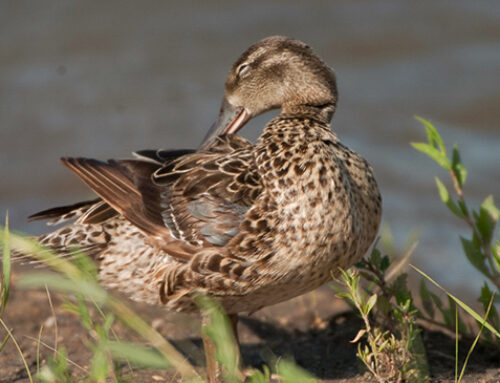
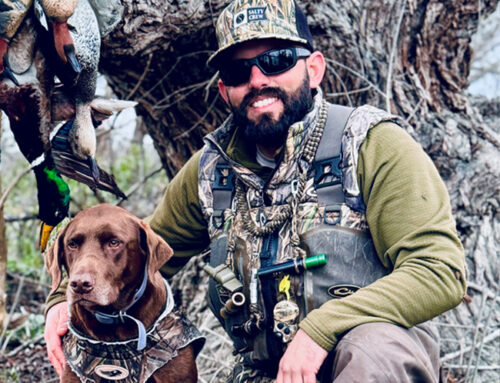
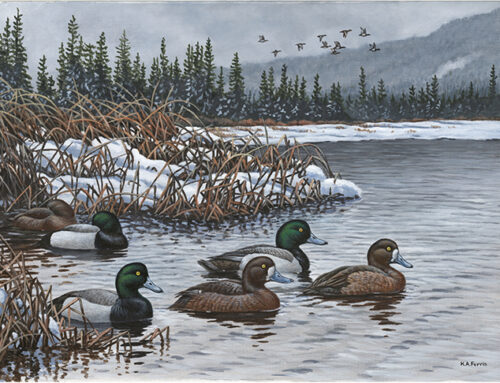
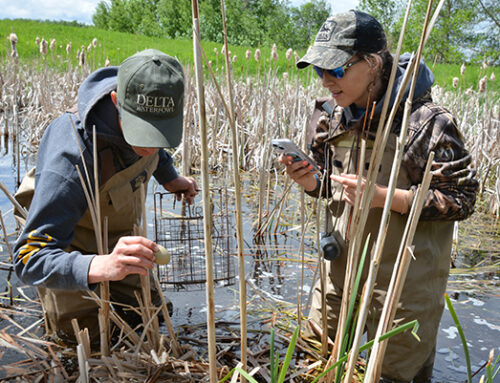
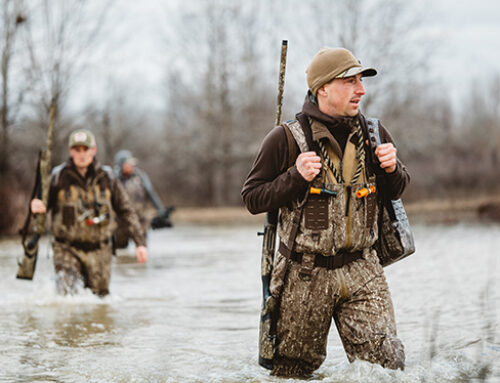
Leave A Comment